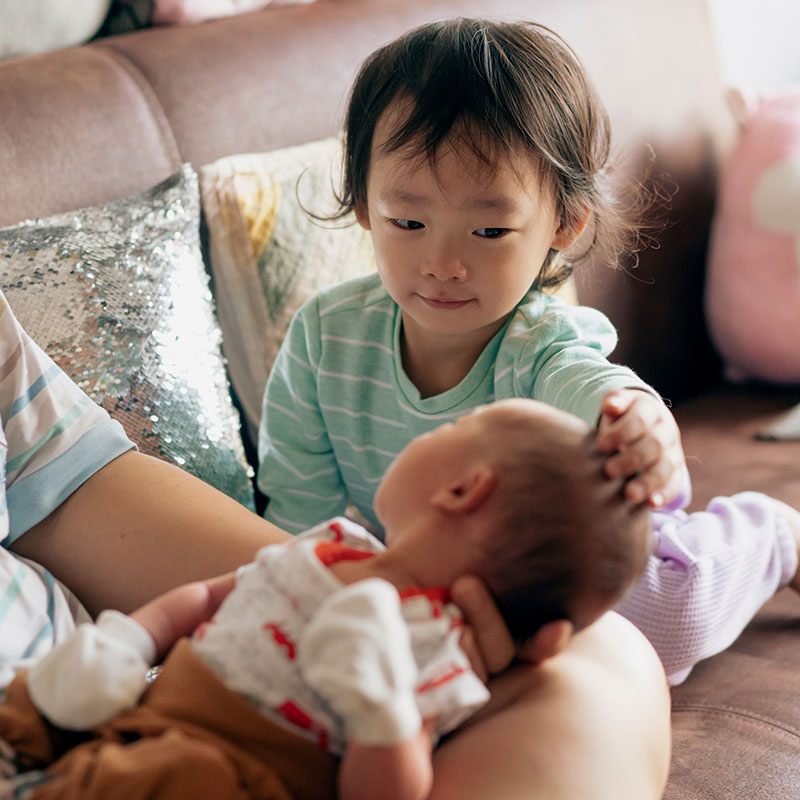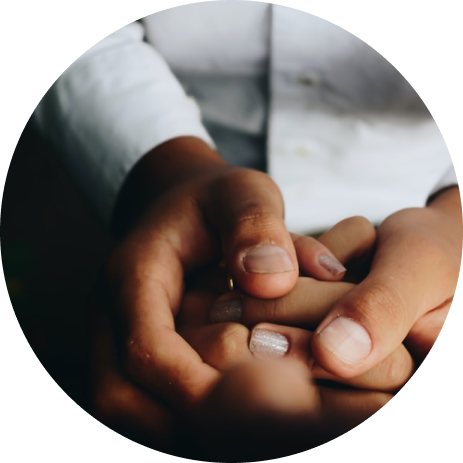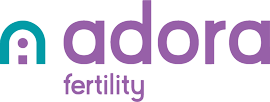About Adora’s donor program
Adora is committed to making the chance of growing a family more affordable for every Australian. Our de-identified and known donor options offer a more affordable option for those that need donor sperm, eggs or embryos to achieve their family goals.
Donor Sperm
For many people looking to grow their family, donor sperm from either a known donor or a de-identified donor provides the means to do so. Solo mothers by choice, lesbian couples, and heterosexual couples with male factor infertility or a genetic condition they wish to avoid passing on may require a sperm donor to conceive. Donor sperm can either be used with an intra-uterine insemination (IUI) treatment cycle or an IVF cycle. Your fertility specialist will advise you on the best treatment plan.
Lesbian couples have the option of egg sharing (also known as reciprocal IVF). With reciprocal IVF, the eggs of one partner are used in an IVF cycle to create embryos with a sperm donor. The embryo is then transferred into the uterus of the other partner, with the effect that one partner is the birth parent and the other the genetic parent.
*Reciprocal IVF is not currently available in WA unless there is a medical reason to do so.

A known sperm donor is a male known to an individual or couple that is willing to provide their sperm altruistically. The donor and recipient will be required to attend appointments together, and treatment can begin once a 3 month quarantine period is completed for frozen sperm. There are some requirements for known sperm donors through Adora, including that they undergo health checks, mandatory counselling, and that they be under the age of 45.
Adora Fertility has partnered with The World Egg and Sperm Bank (TWESB) and Seattle Sperm Bank (SSB) in the USA to provide our patients (in selected states) access to de-identified donor sperm. All donors allocated to Adora Fertility strictly adhere to Australian Federal and State Legislation. They are altruistic, undergo thorough medical checks, counselling and comprehensive screening.
The availability of donors is managed by the overseas donor bank and may change daily. The process to donate de-identified sperm can be long and there may be instances where the donor pool is limited, or a waitlist may apply. Unfortunately we are unable to guarantee the availability of donors at any given time.
Following your consultation with a Fertility Specialist, during which an appropriate treatment plan will be determined, you will receive a custom link tailored for Adora patients. After registering with the chosen donor bank, you’ll gain access to view the donors available to Adora within the state you are undergoing treatment.
Important:
The World Egg and Sperm Bank is available to patients’ undergoing treatment in WA, NSW and QLD.
Seattle Sperm Bank is available to patients’ undergoing treatment in NSW and QLD.
If your state does not currently have access to either donor bank, you may choose to travel interstate to receive treatment.

Donor Eggs
An egg donor may be needed for several reasons including unsuccessful fertility treatment due to poor ovarian response or egg quality, or when a woman does not produce eggs/oocytes due to a medical procedure or premature menopause
In many instances a known egg donor may take the form of a sister, relative or friend who offers to undergo an egg collection in order to donate. Ideally egg donors should be between the ages of 18-35 years old, with a BMI of 18-35, and will be required to undergo health checks and mandatory counselling prior to donating.
Donor Embryos
Donor embryos may be required where both a male and female in a couple have fertility issues, or where a single female is looking to have a child, and has issues precluding her from being able to use her own eggs.

Embryo donors are most commonly couples that have undergone fertility treatment themselves, which has produced embryos surplus to their family goals. Known embryo donation means that the relationship between the donor and prospective recipient cannot be facilitated by Adora. This relationship could be through a personal connection, an online forum etc. Known donated embryos must be transferred to Adora Fertility (if not already located there) prior to treatment commencing. Frozen embryo transfer is a relatively simple procedure.
Costs
The costs of treatment with donor sperm, eggs or embryos will depend on the type of donor (known or de-identified), and the type of treatment undergone.
- Sperm Vials/Shipping – Payment for de-identified sperm vials and the shipping of vials will be made directly to TWESB or SSB
- Donor coordination fee – A one off Donor Program Coordination fee of $1,890 applies to all donor recipients undergoing treatment
- Treatment cycle costs – This depends on the treatment plan outlined by your fertility specialist, and whether your treatment is Medicare eligible. View our complete list of Costs.
Regulation of donation of eggs, sperm and embryos in Australia
- People conceived using donated eggs/sperm/embryos are entitled to know their genetic parents, should they want this information once they turn the age of 16 in WA and QLD and 18 in VIC and NSW. Therefore, all known donors must consent to release of identifying details to Adora. The information includes the donor’s medical and family history, identifying information, the assumed gender at birth and number of persons conceived using the eggs/sperm/embryos provided by the same egg/sperm/embryo donor. A donor must also be prepared to release any identifying information to offspring.
- Adora Fertility has a responsibility to report donor birth outcomes. Adora will comply with relevant State Legislation and/or Regulation in relation to reporting donor birth outcomes.
- Donors will have no legal rights or responsibilities for any offspring born from their donated eggs, sperm or embryos.
- An egg and/or sperm donor is free to withdraw or vary their consent as defined in relevant state legislation or regulation.
- Donors are entitled to some information about the offspring born. Non identifying information about live births, the child’s assumed gender at birth, the number and age of children born, and any birth abnormalities can be provided on request.
- Donors and a person conceived using donated eggs/sperm/embryos need to be protected from the consequences of having many offspring and siblings. Under legislation applicable in each state and territory of Australia a donor can only donate to a certain number of families.
- Donating eggs/sperm/embryos in Australia is altruistic, it is illegal to receive or make any type of payment for donated eggs/sperm/embryos.
FAQ’s – The World Egg and Sperm Bank
General
A donor is only allowed a limited number of family spots as per state legislation. The donor may also wish to specify a lower number. To ensure that the family limit is not breached, we classify every reservation as a potential live birth. To ensure that the patient can continue using the donor, they must have one of the following:
- An active reservation,
- Embryos in storage created using the donor,
- Awaiting a pregnancy outcome,
- An ongoing pregnancy,
- A live birth.
Failure to meet the above criteria may result in the patient forfeiting their family spot with the donor and allow other patients to use that donor.
Adora Fertility currently only have a Service Level Agreement in place with The World Egg and Sperm Bank and Seattle Sperm Bank. Patients cannot reserve sperm from a donor bank that we do not have a service level agreement with due to regulatory and contractual obligations. These agreements ensure that we maintain high standards of donor selection, screening, and quality control that align with Adora’s policies and procedures and also state and federal legislation
The donor has either:
- Reached their family limit, meaning that no more reservations are available for the donor currently,
- All vials of sperm have been exhausted or,
- The donor is no longer participating in the program.
Screening and Counselling
Due to the ever-evolving landscape of expanded carrier screening, you are not required to undergo expanded carrier screening if your donor is identified as a carrier for a condition.
However, you must complete genetic counselling to fully understand the potential risks associated with using a donor who is a known carrier for a genetic condition. This ensures you are well-informed about your reproductive choices and can make decisions that align with your preferences and health considerations.
Counselling must be completed, and a report provided to your Adora Fertility Specialist prior to commencing treatment.
Please note that genetic counselling is different to implications counselling.
Reservation and Fee’s
The reservation fee must be received by TWESB within 10 business days to maintain your reservation.
SSB requires a minimum reservation of 3 vials per donor, while TWESB does not have a minimum requirement, however we strongly recommend reserving at least 3 vials per person. A refund is not offered for any unused sperm as per the terms and conditions outlines in SSB and TWESB’s contracts.
Please consider the following when deciding the number of vials to reserve:
- The cost of shipping,
- The treatment type,
- The number of children you would like to have,
- The number of children you may choose to have using the same donor.
Treatment
- All investigator screenings including genetic carrier screening, CST and ultrasounds must be complete,
- The specialist will choose the most appropriate treatment option for you – this may impact the type of vials you will need to reserve,
- All consent forms must be completed prior to the import and storage of imported donor sperm,
- As TWESB and SSB do not offer refunds it is essential that you are cleared for treatment by the specialist before reserving a donor.
The sperm must be received at the clinic before treatment can commence. While sperm is shipped via courier express to the clinic, delays may occur during customs clearance.
Compliance and Legislation
As it is illegal to trade in human gametes, Adora cannot purchase any unused or unwanted sperm from patients.
Due to the difference in family limits, it may not be possible to export embryos created using a de-identified donor between state within Australia.
Please contact the donor coordinator for further assistance.
